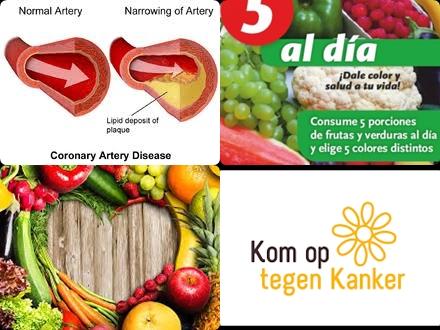
Objectives:
Low fruit and vegetable intakes are recognized risk factors for noncommunicable diseases. Therefore, this review article has been conducted.
Do fruit or vegetables intakes reduce noncommunicable diseases, likes cancer, coronary heart disease and all-cause mortality?
Study design:
This review article included 64 reports investigating 98 risk-disease pairs. 56 pairs from 39 reports were assessed as statistically significant, involving 29 burden of diseases.
Results and conclusions:
The investigators found in linear dose analysis for each 100 g/day increase in fruit intakes a significantly reduced risk of 44% [RR = 0.56, 95% CI = 0.42 to 0.74] for esophageal cancer.
Significant means that there is an association with a 95% confidence.
The investigators found in linear dose analysis for each 100 g/day increase in fruit intakes a significantly reduced risk of 28% [RR = 0.72, 95% CI = 0.59 to 0.87] for mouth, pharynx and larynx cancer.
The investigators found in nonlinear dose analysis for the first 100 g/day increase in fruit intakes a significantly reduced risk of 14% [RR = 0.86, 95% CI = 0.84 to 0.88] for stroke.
The investigators found in nonlinear dose analysis for the first 100 g/day increase in fruit intakes a significantly reduced risk of 11% [RR = 0.89, 95% CI = 0.88 to 0.90] for all-cause mortality.
The investigators found in linear dose analysis for each 100 g/day increase in vegetable intakes a significantly reduced risk of 12% [RR = 0.88, 95% CI = 0.80 to 0.95] for renal cell cancer.
The investigators found in linear dose analysis for each 100 g/day increase in vegetable intakes a significantly reduced risk of 11% [RR = 0.89, 95% CI = 0.84 to 0.95] for non-Hodgkin lymphoma.
The investigators found in nonlinear dose analysis for the first 100 g/day increase in vegetable intakes a significantly reduced risk of 14% [RR = 0.86, 95% CI = 0.84 to 0.89] for coronary heart disease.
The investigators found in nonlinear dose analysis for the first 100 g/day increase in vegetable intakes a significantly reduced risk of 13% [RR = 0.87, 95% CI = 0.84 to 0.90] for all-cause mortality.
The investigators found in nonlinear dose analysis clear increases in protective associations were observed with the first 200 g/day of fruit or vegetable intakes, whereas little further increase or even decrease in protective associations were reported beyond 300 g/day intakes.
The investigators found canned fruit intakes were positively associated with all-cause and cardiovascular disease mortality.
The investigators found pickled vegetable intakes were positively associated with stomach cancer.
The investigators concluded that 100-300 g/day of fruit or vegetables intakes reduce certain cancers, coronary heart disease and all-cause mortality. These findings support existing recommendations for fruit and vegetable intakes. Current comparative risk assessments might significantly underestimate the protective associations of fruit and vegetable intakes.
Original title:
The Associations of Fruit and Vegetable Intakes with Burden of Diseases: A Systematic Review of Meta-Analyses by Yip CSC, Chan W and Fielding R.
Link:
https://www.ncbi.nlm.nih.gov/pubmed/30639206
Additional information of El Mondo:
Find more information/studies on fruit and vegetable consumption, coronary heart disease and cancer right here.